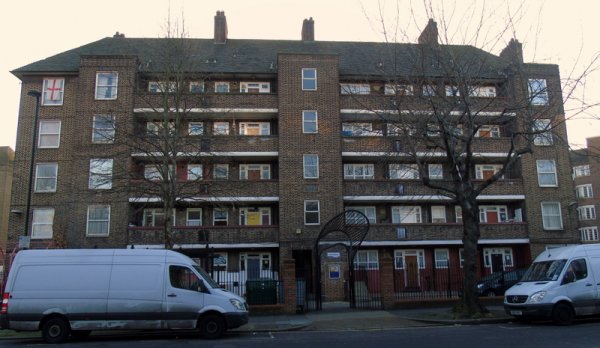Apr 2nd 2019, 12:10
Blog 2nd April 2019
In this week’s blog, I refer to: Service Charges; Ministry for Housing, Communities & Local Government (MHCLG); Right to Buy; Chartered Institute of Housing (CIH); Local Authority Housing Finance; Brexit; Nigel Farage; Rory Stewart; the Guardian; Landlord incentives; Local Government Finance; Seminars & Training.
Last week, I presented an in-house session of ‘All You Want to Know about Service Charges in Social Housing’ at a local authority in Northwest England. Delegates said that they found the information provided very relevant, that the quality of presentation was excellent and that the training met their needs fully. They described the session as useful, clear, comprehensive, interesting and practical. Specific comments included:
After the session, the organiser wrote to me to say:
"Hi Adrian, thanks for the training, it was very informative. I think we’ve probably got a long process to go through to get to where we want to be with service charges but at least we have a better knowledge of where to start now!"
For more information about in-house training in service charges, please click here.

The Briant Estate, owned by Lambeth Council in London.
Last week, the Ministry for Housing, Communities & Local Government published statistics on the ‘Right to Buy’. Councils in England sold 2,645 dwellings under the scheme from October to December 2018, while only 1,038 replacements were started on site or acquired. This represents a 9.4% increase in sales on the previous quarter and a 32% fall in starts or acquisitions.
The number of sales in the last quarter of 2018 is around four times higher than in the year before reinvigoration of the Right To Buy, with increased discounts in April 2012. Since the reinvigoration of Right To Buy, 75,618 homes have been sold, while just 21,890 homes have been started or acquired to replace them.
In October 2018 the Chartered Institute of Housing published research that showed that more than 150,000 of the most affordable rented homes have been lost across England in just five years and predicted that loss will reach nearly 200,000. Their analysis showed that ‘Right to Buy’ discounts had climbed to £1billion a year, costing local authorities £300million a year. According to their calculations, reducing discounts by just a third could free up enough funds to deliver an extra 12,000 homes a year.
In my response to the government’s social housing green paper, I argued that local authorities should be empowered to suspend the ‘right to buy’. To view or download a copy of my response, please click here.
On 19th March, I presented our spring 2019 seminar on ‘All You Want to Know about Local Authority Housing Finance’ in London. Delegates said that the information provided was very relevant, the quality of presentation was excellent and that the training met their needs fully. They described the session as interesting, useful, clear, comprehensive and thorough. Specific comments included:
The next session will be held in Leeds on 16th July 2019. For further information or to make a booking, please click here.
I am becoming increasingly concerned at the tone of political debate in England. Many MPs and other public figures have received credible threats, including death threats, and some, are reportedly unable to go home because of them. We are seeing attacks on synagogues and mosques and three years ago we saw the murder of Jo Cox.
Nigel Farage’s threat to ‘don khaki, pick up a rifle and head for the front lines’ if he is unhappy with the outcome of ‘Brexit’ has been widely interpreted as a suggestion that violence would be justified. However, more mainstream politicians have made similar comments. For example, I was recently at a meeting that was addressed by Rory Stewart MP, Minister of State at the Ministry of Justice who said that if Brexit didn’t happen:
“Quite moderate people in this room would be quite tempted to break windows.”
I find it quite remarkable that a Minister of State would say that breaking windows is a ‘moderate’ response to not getting your way politically. It sounded like he was justifying political violence. I know him to be a student of history, so he should know that those who start by breaking windows often end up by killing people. Nazi Germany and the Northern Irish troubles both taught us that. Also, how credible is a politician who tells young people that they shouldn’t carry knives if, on the other hand, he is justifying the breaking of windows by his ‘moderate’ supporters?
Surely all democratic politicians should be urging their supporters to pursue their political objectives through legal and peaceful means and condemning anyone who suggests otherwise.
An interesting article by Nye Jones appeared in the Guardian last week entitled ‘Why do councils encourage profiteering from homelessness?’ The article looks at the problem of ‘landlord incentives’ where councils make payments to private landlords to encourage them to continue to house tenants who may otherwise become homeless. Nye gives the example of:
“One council offering a landlord a £2,000 incentive, only for them to solicit a better offer from another borough, playing the two authorities off against each other until they pocketed a £4,000 incentive to rent out a damp, mouldy studio flat.”
He concludes that:
“Local authorities are bribing private landlords to house homeless families. Throwing money away doesn’t address the causes of the problem.”
To view the article, please click here.

Leeds Civic Hall, the headquarters of Leeds City Council, West Yorkshire.
In May, we will be holding our seminars on ‘All You Want to Know about Local Government Finance’. Local Government is going through a period of significant change. There has been a significant and ongoing reduction in funding for local government since 2010 and this is requiring a fundamental redesign of how authorities are organised, and services are delivered. The coalition government passed the Localism Act that promoted local decision making and abolished most ring-fenced grants. The localisation of business rates that is ongoing and revenue support grant is being phased out. There is uncertainty about local government finance moving forward because of the Fair Funding Review and ‘Brexit’.
This seminar is a useful introduction and overview of this important subject and covers revenue and capital finance, the changes that the government is making and how local authorities can respond to this challenging agenda. There are sessions in London and Leeds.
For further information or to make a booking, please click here.